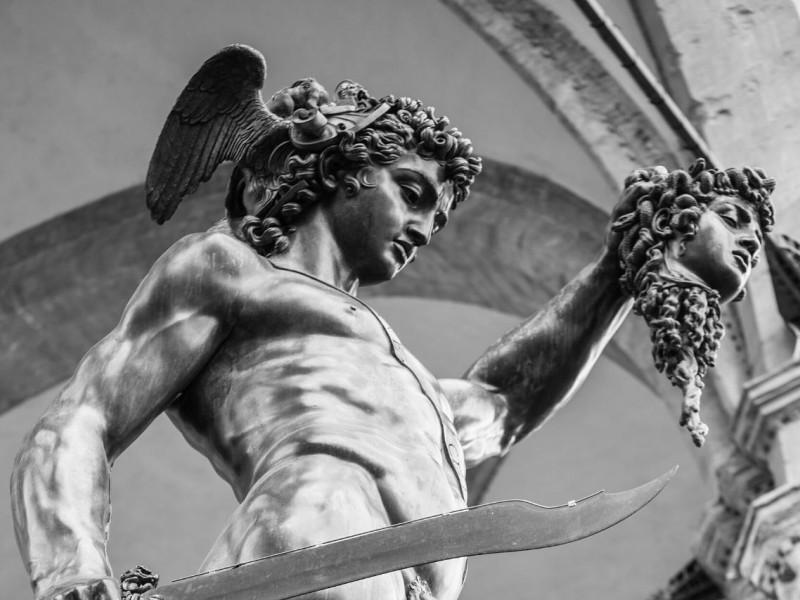Death of King Pelias
Upon returning home, the Argonauts were disbanded, while Jason and Medea went to Iolcus with the Golden Fleece. Jason gave the Golden Fleece to his uncle Pelias.
But during Jason's absence, Pelias had either murdered Jason's father or forced Aeson to kill himself. Either way, Jason wanted to punish Pelias.
According to Diodorus Siculus, Pelias forced Aeson to poison by drinking the blood of a bull. Jason's mother had had also ended her own life with a sword or dagger, but not until after she lay a horrible curse upon Pelias while Pelias murdered Jason's baby brother, Promachus.
Jason asked Medea to help him avenge his father.
The most common tale on how Pelias died was that Medea tricked Pelias' daughters (except Alcestis), claiming that she had the power to restore Pelias' youth. Medea demonstrated on a ram, where she killed the old sheep, cut up the body and put the pieces into a cauldron of boiling water. Weaving her spell, she not only restored the sheep back to life, but also made the sheep young again. Hoping to restore their father's youth, the daughters killed Pelias in his sleep and cut up his body. But Medea had already left the palace, leaving the daughters horrified that they had been tricked into murdering their own father. According to Diodorus, Jason took pity on the daughters and prevented them from committing suicide, promising them to find them husbands.
Some say that Jason seized the throne, but later gave the throne to Acastus, Pelias' son. Others say that Acastus and the Iolcians drove Jason and Medea into exile.
Acastus held great funeral games in honour of his father. Many heroes took part in the funeral games of Pelias, and among them was the heroine Atalanta who would win a wrestling match by defeating the hero Peleus.
Hera's revenge had been fulfilled. The whole purpose of fetching the Golden Fleece was only incidental to the goddess' real plan. The whole purpose of the quest was so that Jason would bring back Medea, who would use her magic to bring about the downfall of Pelias.
After Pelias' death, Hera took no further interest in Jason's life. Jason's adventures were largely unspectacular after the quest. Jason and Medea found themselves living in Corinth where their marriage ended in tragedy. I would suggest that you read the article on Jason in the Heroes I page and Medea in the Heroines page about their lives after the Quest.
As to what had happened to the ship Argo?
Argo was left to rot on the beach. When the elderly Jason visited the old ship, a rotting beam fell on him and killed him.
According to Hyginus, the Argo was placed among the stars by the gods. However the ship was a very large constellation in the southern hemisphere, so the astronomers divided the ship into several constellations: Carina (the Keel), Puppis (the Stern), Vela (the Sails), and Pyxis (the Compass). These constellations were grouped together and called Argo Navis. See Astronomy.
Related Information
Sources
Argonautica, written by Apollonius of Rhodes.
Pythian Odes was written by Pindar.
Library of History was written by Diodorus Siculus.
Library, written by Apollodorus.
Metamorphoses was written by Ovid.
Fabulae was written by Hyginus.
Description of Greece was written by Pausanias.




